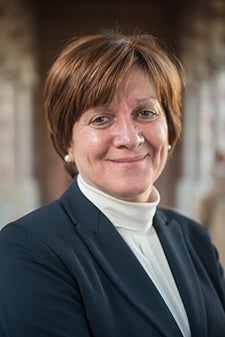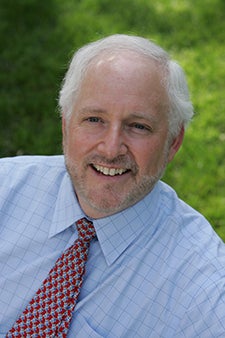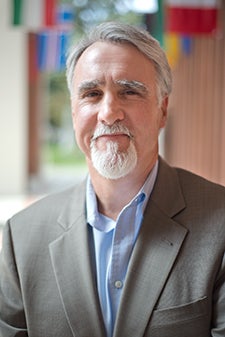
USC Dornsife experts analyze Europe’s refugee crisis: Part 3
Record numbers of refugees continue to make their way from the Middle East — and particularly war-torn Syria — to Europe. As the situation escalates and winter approaches, USC Dornsife experts Laurie Brand, Robert English and Steven Lamy see more difficulties ahead for the European Union and the rest of the world as they struggle to cope with the tidal wave of people fleeing their homes in search of a better life.
Owing to its geographic location, Turkey has emerged as the main route for migrants entering Europe in search of a safe haven. Yet, the country’s role in the crisis appears to be largely unexamined.
Laurie Brand, Robert Grandford Wright Professor and professor of international relations and Middle East studies, and director of the Middle East Studies Program at USC Dornsife, said she has been particularly puzzled by the dearth of reporting on the country’s role in either facilitating, or at least not seeking to impede, the exit of people from its shores.
“Turkey is a strong state with ample security forces,” she said. “I can believe that smugglers can evade these people occasionally, but they can’t evade them in these numbers unless there is direct complicity. The Turkish government may be turning a blind eye as the current president tries to increase his importance and influence in Europe. He could significantly block the spigot — if not completely close it — if he were interested in doing so.”

Laurie Brand, Robert Grandford Wright Professor and professor of international relations and Middle East studies, and director of the Middle East Studies Program. Photo by Peter Zhaoyu Zhou.
Brand stressed the massive profits being reaped by the people smugglers.
“They are charging from $1,000 to $2,500 per person,” she said. “By cramming a boat that is supposed to hold 100 people with 250 people, they are making a quarter of a million dollars per boatload of refugees. The question of where that money is going and the networks of smuggling involved and the relationships with the Turkish authorities is a critical one,” Brand said.
“I can’t see this happening without someone being bribed and benefiting directly from this. That’s a big story that I don’t see anyone in the media covering.”
Looking to the long term
While disagreement over how to handle the refugee crisis won’t tear the EU apart, English, associate professor of international relations, Slavic languages and literatures and environmental studies, predicts that the larger, wealthy countries will continue to cooperate while the poor East European ones risk finding themselves increasingly sidelined.
“That’s worrisome because if European unity is fractured, then next time there is a call for joint action or sanctions, it’s going to be harder to achieve,” said English, interim director of the School of International Relations. “The EU won’t fall apart, but it’s weakened and its ability to act in a unified fashion is eroded. That doesn’t help the U.S. when we need Europe to do something.”

Steven Lamy, professor of international relations and vice dean for academic programs.
Lamy, professor of international relations and vice dean for academic programs, suggested that one of the effects of the refugee migration and the violence in Paris will be a rethinking of the transfer of sovereignty in certain policy areas to the EU.
“The Shengen agreement that abolishes passport controls in a 26-country area may be the first policy to be changed,” he said. “Certainly citizens will demand more security coverage from their leaders, and this might result in a focus on national interests over regional or EU interests.”
English hopes that in the long run the refugee crisis and the resulting fallout will be a cautionary lesson for American foreign policy makers when contemplating another intervention or regime change.
“Presumably the next time America contemplates some bold move, the pushback from its European allies will be even stronger,” he said. “That may hamper America’s freedom of action, but in the long run, maybe that’s in America’s best interests.”
A possible silver lining
One hopeful note, Brand said, is the recent shift in position by the U.S.

Robert English, associate professor of international relations, Slavic languages and literatures, and environmental studies, and interim director of the School of International Relations. Photo by Peter Zhaoyu Zhou.
“Assad was a brutal dictator and bears a huge amount of responsibility for how this whole situation has unfolded, but stipulating his departure before you can begin the conversation is a formula for continued bloodshed,” she said. “The fact the U.S. has backed off from that is important.”
English agreed.
“Maybe the silver lining to this refugee crisis will be a strong push to find a compromise that ends the Civil War in Syria and negotiates a peaceful transition out of power for the Assad regime, while preventing the entire state from collapsing and turning into an Iraq or an Afghanistan,” he said.
The new vision of war is permanent, a never-ending conflict of the type now seen in Afghanistan, Iraq and Syria, English noted. These wars will continue to displace people who will try to move as far away as possible from the conflict regions.
“The starting point is fragile or failed states,” he said. “We’ve got to address this problem if we want the tide of refugees to stop.”
Lamy stressed that the current crisis is not only a European issue.
“This is clearly a global challenge,” he said. “It may indicate that our regional and global institutions charged with dealing with human security issues are simply understaffed, underfunded and unable to act effectively where states exercise their sovereign rights.”
In Part 1 of this three-part series, USC Dornsife experts examine the underlying reasons behind European countries’ differing reactions to the flood of immigrants arriving at their borders. In Part 2, our scholars explore who is responsible for this unprecedented flow of refugees.